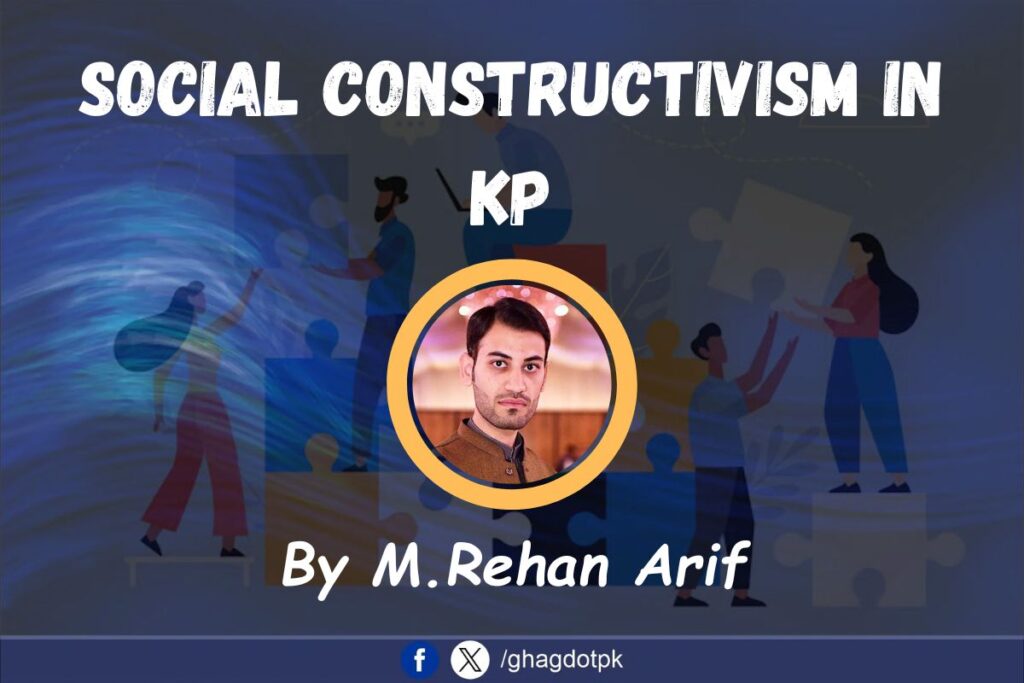By Muhammad Rehan Arif
In a world that is rapidly evolving, one concept that remains deeply rooted in shaping our thoughts, behaviors and interactions is social constructivism. But what exactly is social constructivism? At its core, it’s the idea that many of the beliefs, norms and values we hold are not inherently true or natural rather, they are constructed by the society we live in. These constructs dictate how we perceive our roles, how we behave and even how we view others. They are passed down through generations, influencing the way we live our lives, often without us even realizing it.
In Pakistan, and especially in the culturally rich province of Khyber Pakhtunkhwa (KP), social constructivism plays a significant role in shaping people’s lives. The province, known for its strong adherence to tradition, has its own set of socially constructed norms that are deeply ingrained in its Pukhtoon culture. These norms guide how people dress, interact and make decisions. While they foster a sense of community and shared identity, they can also act as invisible barriers that hinder progress.
For instance, in many areas of KP, the concept of ghairat (honor) is highly valued. This construct determines how families interact, especially when it comes to the behavior of women. A woman’s reputation is often tied to the honor of her entire family, which places heavy restrictions on her freedom to work, travel, or pursue education. As a result, young women with immense potential may be discouraged from seeking higher education or professional careers simply because societal norms dictate that their primary role is to manage the household.
These norms, while rooted in tradition, can sometimes prevent the younger generation from breaking free of societal expectations to pursue their dreams. As the famous saying goes, “The only thing more dangerous than ignorance is the illusion of knowledge.” Many individuals follow these constructs without questioning their validity, believing that this is simply the way things have always been.
Socially constructed beliefs can hinder societal progress by discouraging innovation and personal growth, especially when people are bound by rigid norms that limit exploration and risk-taking. For instance, if young girls in KP are confined to household roles, the region loses potential talents like doctors or entrepreneurs. Education can transform this by promoting critical thinking and encouraging open dialogue. Exposure to diverse perspectives helps people see that change isn’t a threat but an opportunity for betterment. While social constructivism shapes perceptions, challenging outdated norms, especially in tradition-rich areas like KP, can pave the way for growth and equality. As it’s said, “Progress is impossible without change, and those who cannot change their minds cannot change anything.”






